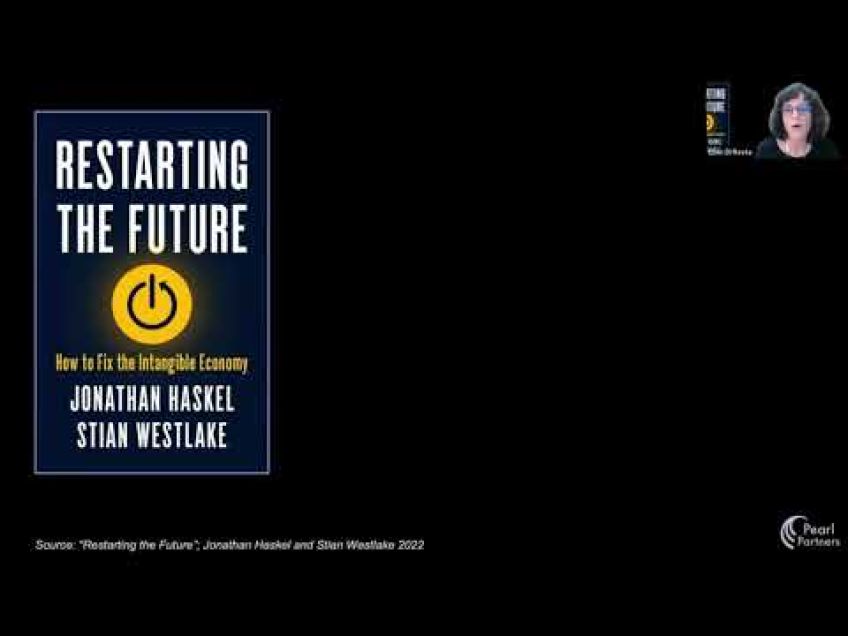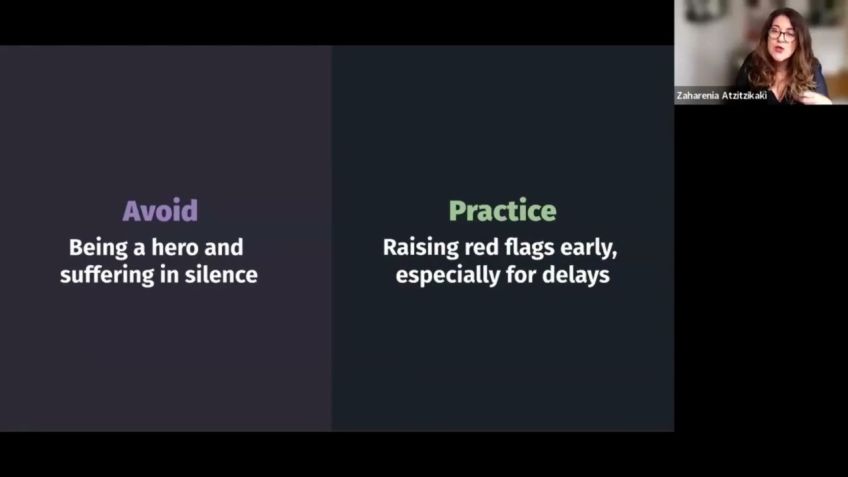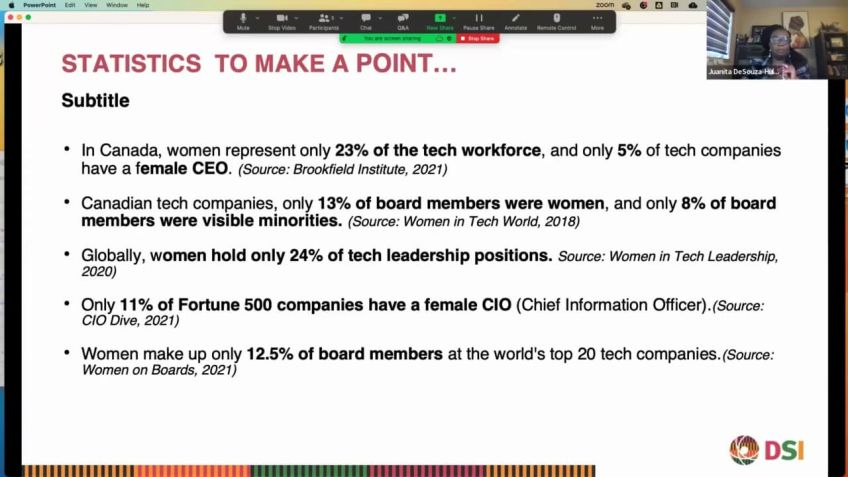Girl, Get Promoted! Demystifying Promotions by Jenny Zhao
Mastering the Art of Getting Promoted
Hello, everyone! My name is Betty Zao, the Head of Product of Digital Services at Asurion. In this article, I'm excited to share with you how to navigate through the world of promotions, especially for the ladies out there. I'll cover some areas we can improve in to increase our chances of stepping up into more leadership roles. So let's dive right in.
About Me
As a child of Chinese immigrant parents, I learned early on that hard work, good grades, and staying out of trouble was a "formula for success", a ticket to becoming a doctor. Fortunately or not, I didn't become a doctor. I did, however, embrace that formula's essence, hard work, ending up at a fantastic university and entering the corporate world.
My First Experience With a Missed Promotion
Despite my hard work and dedication, I surprisingly found myself passed over for a promotion early in my career. This startling revelation left me baffled, angered, and questioning my initial formula for success.
Reflecting on that experience, it dawned upon me that the person promoted had approached their promotion aspirations creatively. He had vocalized his intentions from the onset. This situation pushed me to re-analyze my approach, ultimately inspiring me to share these game-changing tips with you.
Promotions in the Workplace: An Unpleasant Reality
An unfortunate reality is that workplace promotions are not indiscriminately handed out. A recent study showed that women received higher performance ratings but were 14% less likely to get promoted than their male colleagues. This grim reality should motivate us to reevaluate our approach to promotions and take concrete steps to increase our chances.
Strategies on How to Get Promoted
Here are four main categories to help you navigate your promotion journey:
- Building Credibility
- Serving Yourself on a Silver Platter
- Building Relationships
- Finding Your Leverage
And remember, while there's no one-size-fits-all approach, hopefully, you'll find at least one or two things here that you can start doing right away.
1. Build Your Credibility
The first step to earning that desired promotion is to excel in your current job. Align your personal and team goals with your company's strategic vision and achieve them. By accomplishing significant goals, you not only build your credibility with senior leaders but also create opportunities for your team members to get promoted.
2. Serve Yourself on a Silver Platter
Next, position yourself for success by making it easy for your leader to advocate for you. This approach involves vocalizing your promotion needs, bridging the gaps between your current and desired roles, marketing your accomplishments effectively, and preparing your career progression runway.
3. Build Relationships
Relationships are crucial for career advancement. Establish connection with mentors who can guide you and sponsors who will actively pull you upward. Also, find a supportive peer group and ensure frequent communication with your leader about your career goals.
4. Find Your Leverage
Finally, figure out what sets you apart and leverage those qualities to stand out. Be memorable in a good way and make use of your unique strengths.
Sometimes even after doing all these, you might find yourself still being passed up for promotions. In such cases, don't hesitate to consider other options that will value your abilities and contributions better.
Tips for Allies and Leaders
For the allies and leaders out there, if you want to support the women on your team, remember to build their confidence, find opportunities for them to shine and, most importantly, promote them!
Thanks for joining me in this discussion. I'd love to hear from you, so feel free to share your thoughts with me on LinkedIn. Lastly, the good news is Asurion is hiring, so if you're looking for a fresh start, check out our website!
Remember, it's not only about working hard. It's equally about working smart to master the art of getting promoted.
Video Transcription
Hi, everyone. My name is Betty Zao and I am currently the head of product of digital services at Asurion, which is a global tech care services company that's based out of Nashville. I'm here today to talk to you about the art of getting promoted.So first, I'd like to start by sharing a little bit about myself. This is a picture of me with my parents. I emigrated to the US from China when I was two years old growing up to Chinese immigrant parents, I was always told that if I worked hard, got good grades and kept my head down and stayed out of trouble, I would become a doctor. That was the formula for success. But a stereotype. Right. Well, obviously I didn't become a doctor but I did work hard. I got good grades and I got into a good university. And so far the formula seemed to work pretty well for me. The first time I got passed up for a promotion, I was frustrated, angry and baffled. You. See, I did my job and I did it really, really well. I worked hard long hours and never complained just as my parents had taught me this was the formula for success, right? Yet someone who hadn't worked as hard and had put in less hours than me ended up getting the promotion.
Why, how had the formula for success failed me? The guy that got promoted was a white male. And while there's nothing I could do about that, I now realize there was something he did, whether consciously or not that I didn't do and it made all the difference. We'll get to what that was in a little bit. So why am I here today? I realized my experience was not unique in a recent study. It was found that while women on average received higher performance ratings, they were 14% less likely to be promoted than their male colleagues. The study found this was largely due to the emphasis placed on an arbitrary category called potential that is ripe for bias. I'm here today because I'm frustrated by the lack of women in leadership positions. And I imagine you are too, which is why you are here with me today while we can't control the unconscious biases of others, I'll cover some things we can do to improve our chances of having more women in leadership roles other than starting our own companies, I only have less than 20 minutes.
So this is by no means exhaustive or a one size fits all approach. And I recognize everyone's circumstance is unique, but I do hope if you're seeking a promotion, you will take away at least one or two things you can start doing right away. So I've broken these down into four main categories. First one is building credibility. This is the most obvious one. If you want to get promoted, you need to be really good at your current job. If you're not, or you're not in an opportunity to shine, focus on getting better at your current role or move to a job or situation that lets you be really, really good. When I was promoted to a director of product management here at Asurion, there were three things that helped me build my case. The first one was I was deeply involved in my personal, as well as team goal setting, just like the previous speaker was talking about. So for us, this is part of our performance reviews and by partnering closely with my leader, we made sure my goals were clearly aligned with important things that the company cared about when the goals were set appropriately. It made my broader impact obvious and it also gave me a chance to set goals that I could actually achieve this, set me up nicely so that people knew I was accomplishing things that mattered. You should do the same.
If you're not already take a look at what are the most important things your company or organization care about and connect the dots between your personal goals and those broader goals, then make sure you actually achieve them. Second, help your team succeed and make them look good.
As the saying goes, a rising tide raises all ships where possible. I try to remove obstacles from my teammates or help them grow professionally. Um Even when I was an individual contributor, I also made sure our team ones were widely broadcasted. This created opportunities for leaders to associate me with those ones as well. Not only did I get promoted but so did other members uh on my team, including several engineers and UX designers. This helped me build credibility, uh credibility, not only with the senior leaders, but also with my team and my peers. And third be known for being the go to for something. Um For example, in addition to being the subject matter expert of our team's products, I also became a go to for championing product, best practices for building high performing teams, diverse and inclusive um teams and for developing people. I call this out uh because being a go to can be technical or it can also be something else that's important to the company. And in my case, Asurion has really put a lot of emphasis on improving diversity, equity and inclusion in the last few years. So I was actually able to channel one of the areas I'm most passionate about into an asset. Ultimately, it's not good enough to be good. You must also be known by others for being really, really good at your job. All right. Second, serve yourself on a silver platter.
So basically what this means is figure out how you can package yourself up for your leader to make their job, to promote you as easy as possible in many companies, especially larger ones. A promotion is rarely determined by one person. It usually needs to be agreed upon by a cross set of leaders, which means your boss, not only has to believe you deserve it, but they also have to convince others that you deserve it. So here are four things you can do to help your boss help you. So this scene is from the movie, The Notebook. And this is um that moment where Ron Gosling's character, Noah is yelling at Rachel mcadams character Ali saying, what do you want? What do you want? And if you've never vocalized to your leader, what you want next in your career, go do that A S ad. This seems obvious yet so many people don't do it, especially women. Going back to that first story I shared um about getting passed up for a promotion. The biggest mistake I made was not making it loud and clear that I wanted a promotion I had assumed by doing the work. The leaders would see that I was gunning for that next role. It turns out I never even had a chance because the guy who got it had been making it clear ever since I remember meeting him that, that was a role he wanted next.
It was something I never did and whether or not it would have resulted in my promotion earlier, no one will know, but it would have at least given me a shot versus no shot at all. Figure out what you want and why you want it. This is always time well spent. If you're not sure that's ok too. But I found it's always better to choose a direction in the meantime, until you do figure it out. It's kind of like a product road map. Having something out there is often better than nothing because it invites feedback and participation and like a product road map, things can change based off of new information. Some things you can ask yourself include what roles interest me and why, what makes me a good fit for those roles? Do I want to be an individual contributor or a people leader? Do I want to stay on the team? Um or do I want to try something different? And once you know what you want, make sure your boss knows, make sure your boss's boss knows, make sure your team knows anybody. Um People can't help you if they don't know what you want. Next, bridge the gaps between your role now and the next role you want. So while some lucky people have amazing leaders that help them do this, many don't.
And if you want to get promoted, you have to be willing to do the research, seek to understand what the major differences are between your role and the next and have candid conversations with your leader on what gaps are keeping you from getting promoted, getting alignment on.
This is super important to make the process actionable. And by bringing your boss along for the ride, they will be more invested in seeing you succeed. If you have good alignment and documentation on the gaps between your current role in the next level, it makes it much easier to take action, get help and know where you stand with your leader, be known for good things. You do this by marketing yourself. The easiest way for people to know how amazing you are is if you tell them, put on your marketing hat and learn how to sell yourself in your work. After all the men are, men aren't shy about how good they are. In fact, in a Harvard business review study from 2019, men rated their performance 33% higher than equally performing women. That's right. They performed the same yet men rated their own performances 33% higher. So obviously don't lie. But next time you write up your end of your performance review, think about this. It's impossible for your leaders to know all the details of your day to day work and accomplishments. So it's really up to you to tell them and to the earlier point that promotion processes usually involve other leaders that are even more removed from your work than your leader. What are some quick hits?
Your leader can repeat to help sell you, help them, help you and better yet, if you are good about frequently marketing, your team's work progress and successes out to other decision makers, those decision makers will already know how talented you are without your leader having to say anything to effectively effectively do this.
You should understand what do your leaders care about, what does your culture prioritize. So for example, assurance product org cares about outcomes and learning over effort. So our team makes it a point to share out results of tests and what we learn with broader stakeholders, even if they're not on our immediate team. A couple of ways we do this include sending an email to relevant stakeholders and decision makers for notable wins, kind of like a press release. Um We also meet monthly with senior leaders to share out results and seek feedback. This gives our team an opportunity to showcase their progress regularly as well as it gets senior leaders invested in our work and success. This allows other decision makers to get familiar with our work and our people, which then makes it easier for me to talk about how amazing they are when it comes to promotion time versus selling someone cold. And the last part on how you can serve yourself up on a silver platter to your boss. Is create opportunities for yourself, prepare the runway. So if you think about airplanes, they can only take off if the runway is clear, getting yourself promoted is pretty similar.
Here's an example for me, moving from a senior product manager to a director role meant I needed to spend more time with overarching vision and strategy and assuring. That evolved with where the company was headed. I realized I was having a hard time doing that because I was getting bogged down by so many small things where I was the only person who could address these things. I realized I needed to make myself less necessary to the day to day operations of the product team. If I wanted to expand my scope, I did this through creating repeatable systems, templates and self service processes. So instead of wasting time and energy reinventing the wheel, I have go to templates for sharing out experiments or my go to processes for prioritization meetings by just reusing things that worked in the past. I saved myself so much time. I was also very transparent about things and always tried finding ways for people to help themselves. So for example, I kept getting asked about um certain questions about data and how we're performing. So we prioritize building out a self-service data dashboard that updated the numbers in real time so that stakeholders could monitor what was going on without bothering us, democratized ownership. So for example, our team would regularly rotate who ran stand ups in retros.
It didn't always have to be the product lead. The unintended consequence was it actually improved participation and engagement in our meetings? And it meant I wasn't the always the one having to, to prepare for every meeting. Um And the last you get really good at delegating as you grow in your career, it becomes less about what you do and more about the broader impact you can make, which oftentimes it's done through others learning early how to delegate is a crucial life skill in your career progression.
It may seem counterintuitive, but you can think about it uh as how can you work yourself out of your job so you can work yourself into another one. A good litmus test is asking yourself, can I go on vacation for two weeks without someone bugging me? And progress is still being made when you have redundancy, you free yourself up to do higher level work for the higher level role you want. And it makes a transition, an easier decision and easier um logistically to execute. Last. Um Another thought here is um you can write your own job description. So in some cases, you might need to actually just create your own role to get promoted. Um At one company, I actually created two of my roles there. I did this by identifying gaps in the company that were holding it back from achieving its goals. And then I recognized what my strengths were and what I wanted and uh working with some mentors and my leaders. Um I connected the dots between those two worlds and was able to kind of craft two new roles that um I ended up taking on. All right. Third build relationships. Um Relationships are super important to get you promoted. Everyone knows this. In addition to having mentors also make sure you get a sponsor. What's the difference? Mentors are people who you may go to a specific questions about an area of expertise or for advice. Um These are people who may push you up or forward.
Um Sponsors are people who actively pull you up. So for example, I had one previous leader at Shian who identified an amazing opportunity that he thought could be career defining for me. I loved the current project I was working on, but he paved the way and insisted that this new opportunity was worth pursuing. It was a lateral move at the time, but it was that move that eventually resulted in me getting promoted to a director. I never would have made that move if that leader hadn't believed in me before, I believed in myself. Second, find your cohort and grow together. So look around and identify peers who are also high performers are respected and that you respect and seek to form alliances with them.
It's often said that it gets lonely on top, but it doesn't have to be that way we need to get ourselves out of this mindset that it's always a competition. Well, it might be, you benefit so much more when you have a community of smart, talented people who you can grow together with. To this day, I have close relationships with people. I've worked with earlier on in my career and it's been really, really cool seeing our careers grow in parallel. What's more, it's been so valuable having these people to turn to when I have questions or problems. And they, they kind of get me, they've been through the same thing that I've been through and we have that in common. Lastly, make sure you are talking frequently with your leader about your career goals and progress. This can't be overstated. This needs to happen more than once a year during your end of year review, this should be happening all the time. All right, home stretch, last section, find your leverage. OK. So figure out what your strengths are and find opportunities to use them and market the heck out of it. There are a lot of talented people out there. So what is unique about you that sets you apart and makes you memorable in a good way.
Um For example, in a previous role, um working for a staffing company, I worked in an industry that was primarily white men. At first, I thought this would be a disadvantage and while it was at the time, um while it was at times, I quickly learned that there were benefits to being different. Um in a sea of Johns and Max and Steves being a Jenny, just inherently made me stand out and made me more memorable. So that when there was an opportunity to provide our service, they called me because they remembered who I was. Lastly, if you have done literally all of the things we've covered and you keep getting passed up for promotions, it might be time to find a new place in the previously mentioned mit study men who were passed over for promotion were 35 to 40% more likely to leave than female employees.
Sometimes even that unconscious bias of uh men results in a man getting promoted over a woman. And if that's the case, sometimes we have to be brave enough to know our worth and stand up for ourselves and find us a place that values us. In summary, these are the four sections we covered on things you can do be really, really, really good at your current role. Make it easy for your boss to advocate for you, build relationships up down around and know your worth as a bonus for allies and leaders out there, learn to recognize where you or your company's promotions processes might be biased. What you can do is to support the amazing women on your team is build their confidence, asking the right questions if they aren't proactively offering things up I will never forget um being sat down by VP once early in my career at Asurion. And he asked me just what I wanted to do out of the blue. And it was that meeting that I mentioned I was interested in product and I would love an opportunity at some point to try it. Two months later, I got the opportunity to be a product manager. These things are important.
Um Third um find her opportunities to shine whether that's setting up a monthly leadership cadence like our team does or bringing up a shiny opportunity to her that you think she will do well in good leaders, find opportunities to help their people grow and lastly the most obvious one, promote women.
Thanks so much for joining me today. I would love to know what you thought about today's talk. So feel free to share your thoughts with me on linkedin. That's uh my linkedin right there and I'm grateful for the career growth Urian has provided me and the good news is we're also hiring. So um we're looking for great people to join our team. We would love to work with you. We're hiring for engineers, product managers, UX designers and more. So you can scan the QR code to apply or you can visit our booth and talk to some of my amazing coworkers. So thanks again and enjoy the rest of the conference.
Do both scan and go visit the booth. I you maximize your chances. You know, I just feel so energized with your presentation. I think that there, like it was super useful. There saw comments in the chat and like people were looking forward to this presentation because yes, women do want to get promoted. So I share, I just started my role but I already want to get
actually get there.
I was blown away with the stat that you shared that men actually rated their performance like 32% higher than women with the same result. This was like, oh my God, seriously, we should, you know, like do better and yeah, absolutely. Something interesting that you mentioned creating a job description. Maybe that doesn't the job and the job description for the job you want to do, which doesn't exist as a big company. And that was super interesting, I think and maybe something interesting for our people. There is a question.
Let's take it. How do you deal with the situation where someone else takes away your wins and credits?
Yeah, that's a really great question. Um So I generally like to start with giving people the benefit of the doubt. So first I might start pulling them aside one on one, maybe after the meeting happened or if that situation occurred to address it directly with the person that's doing that to make himself aware that that's happening. Um in most cases it's innocent. But if it's done egregiously, then you be the ones to share it before they do. So, if you're doing a good job of proactively marketing your team's work or your work, um, you can share it out before they get to it.
Yeah. Thank you. Thank you for your answer. And I think we're just on time and we took one minute for the question. So, thank you so much, Jenny. I think people were asking about your slides. They wanted to go back to different parts. But I think the best food, if they just follow up with you on linkedin, I'll drop by Assurance Booth.
Yep. Sounds good. And I'll find a way to share, share the slides um somewhere, so I'll get the free.
Thank you, Jen. It was really awesome to have you with us and thank you for useful presentation today.
Thanks for the time.





